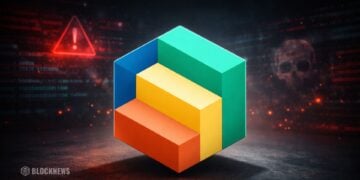In this recap of the crypto world, we will explore the events and news that had the most significant impact in the past week of Aug 07. Our focus will be on the following developments:
- PayPal Launches Its Crypto Stablecoin
- ChainLink Releases Atomic Swap Feature
- Cronos Launches the Cronos Explorer on its Testnet
- Binance Becomes First Fully Licensed Exchange in El Salvador
- Coinbase Launched Its Own Decentralized Blockchain
PayPal Launches Its Crypto Stablecoin
In a bold move that further solidifies its status as a major player in the world of digital finance, PayPal has unveiled its very own stablecoin, the PYUSD. This groundbreaking development, announced on August 7th, brings a new dimension to the digital payment landscape, promising to reshape the way we transact and interact with cryptocurrencies.
As per WatcherGuru, PYUSD is a stablecoin backed by US dollar deposits, short-term Treasury bills, and other cash equivalents, ensuring that the value of this digital asset remains steady and predictable. This stability is a crucial aspect of a stablecoin, as it provides users with a sense of trust and reliability.
Furthermore, one of the most significant features of PYUSD is its redeemability for US dollars. This means that at any time, users can exchange their PYUSD tokens for US dollars, providing a level of stability and trust that is essential for a stablecoin to function effectively. Moreover, PYUSD can also be converted into other cryptocurrencies available on PayPal’s expansive network, expanding the possibilities for users to diversify their digital assets.
As the next few weeks unfold, users can look forward to the ability to convert their fiat currency into PYUSD, unlocking new possibilities. PayPal’s venture into the world of stablecoins not only solidifies its position as a fintech trailblazer but also paves the way for wider mainstream adoption of digital assets.
ChainLink Releases Atomic Swap Feature
Chainlink, the decentralized oracle network, has just thrown open the doors to a new era of possibilities with the release of its much-anticipated Atomic Swaps. This monumental move aims to supercharge peer-to-peer functionality, providing a method for individuals to trade tokenized assets seamlessly across various blockchain networks, all without the need for centralized intermediaries.
In essence, this feature enables the peer-to-peer exchange of crypto tokens, with a twist. The trade execution is conditional, meaning the swap will only occur if both parties involved deposit a predetermined quantity of tokens into an exchange contract. This ingenious concept ensures that all trade conditions are met before the transaction fully executes, or it does not execute at all. This creates a highly secure and transparent process where both parties are protected, reducing counterparty risks.
The introduction of Atomic Swaps arrives as a pivotal development for the DeFi landscape. In the multi-chain Web3 ecosystem, where various blockchain networks coexist, the ability to move seamlessly across these chains has been a challenging endeavor. This new feature by Chainlink provides an elegant solution, granting DeFi users the means to maintain decentralization while navigating through this complex and multifaceted terrain. Read more on this here.
Cronos Launches the Cronos Explorer on its Testnet
Cronos, the innovative blockchain platform, has taken a significant step forward with the unveiling of its latest tool, the Cronos Explorer on Testnet. This intuitive and user-friendly block explorer is set to undergo substantial development over the next year, positioning itself as the primary reference point for both Cronos users and the vibrant community of developers.
The Cronos Explorer opens a gateway to essential information, providing users with insights into critical details such as wallet information, block analytics, transaction specifics, and other indispensable data. Its design is carefully tailored to the unique and distinctive needs of both Cronos users and the creative minds who build on the platform. It works as a bridge that connects users with Cronos chain information across the EVM (Ethereum Virtual Machine) and Cosmos SDK layers.
Furthermore, in the rapidly evolving landscape of blockchain, Cronos’s team recognizes the need for adaptability and evolution. This awareness drives the continuous development and enhancement of the Cronos Explorer. Their goal is not just to match the features of other explorers, but to provide distinct and unparalleled functionalities. Read more on this here.
Binance Becomes First Fully Licensed Exchange in El Salvador
In a groundbreaking development for both Binance and the cryptocurrency landscape as a whole, the renowned exchange has secured an extraordinary achievement by becoming the first fully licensed exchange in El Salvador. The announcement, made on August 8th, reverberated through the crypto world, signifying the recognition of Binance as a key player in the nation’s digital financial landscape.
The significance of this milestone cannot be understated. Binance’s application for a Bitcoin Services Provider license has received the stamp of approval from El Salvador’s Central Reserve Bank. Additionally, the country’s National Commission of Digital Assets has granted the exchange a non-provisional Digital Assets Services Provider license, solidifying Binance’s position as a trusted entity in the world of crypto services within the nation.
As per Coindesk, Binance now boasts approvals and registrations in a staggering 18 markets worldwide, a testament to its unwavering commitment to establishing itself as a trusted partner for crypto enthusiasts across the globe. Daniel Acosta, the General Manager of Binance for Colombia, Central America, and the Caribbean, underscored the significance of these licenses, noting that they pave the way for a broadened range of products and services tailored to the needs of Binance’s customers in El Salvador.
As Binance continues to advance its initiatives in El Salvador, it sets an inspiring precedent for the broader crypto industry and underscores the transformational potential of blockchain-based financial solutions in a rapidly evolving industry.
Coinbase Launched Its Own Decentralized Blockchain
In a bold stride towards the future, Coinbase has officially launched the mainnet of its revolutionary Base network, now accessible to the public.
As per Cointelegraph, this pivotal development follows the initial beta version introduction on February 23, a move that instantly sparked ripples of speculation within the crypto community, with many envisioning its potential to be the catalyst that onboards a multitude of users into the captivating world of Web3 protocols, all thanks to the immense user base that Coinbase commands. The journey from beta to the mainnet version, which initially catered to the needs of builders, saw the network undergoing meticulous development. While the team cautioned against broad user engagement at that time, the anticipation reached a climax. On August 9th, the Base network flung open its doors, making it available to all users.
At the heart of this groundbreaking network is its technical architecture as a “layer 2” blockchain, ingeniously built on top of the Ethereum blockchain, harnessing the OP Stack software from the acclaimed layer 2 network, Optimism. This architectural innovation is a game-changer, designed to scale and process transactions on the Ethereum network in a manner that is not only efficient but also substantially more affordable for decentralized applications (dApps) when compared to some alternative options.
As a testament to the confidence Coinbase places in this technology, the Base network is poised to become the default platform for Coinbase’s forthcoming on-chain developments, hinting at the potential of this innovative technology.














